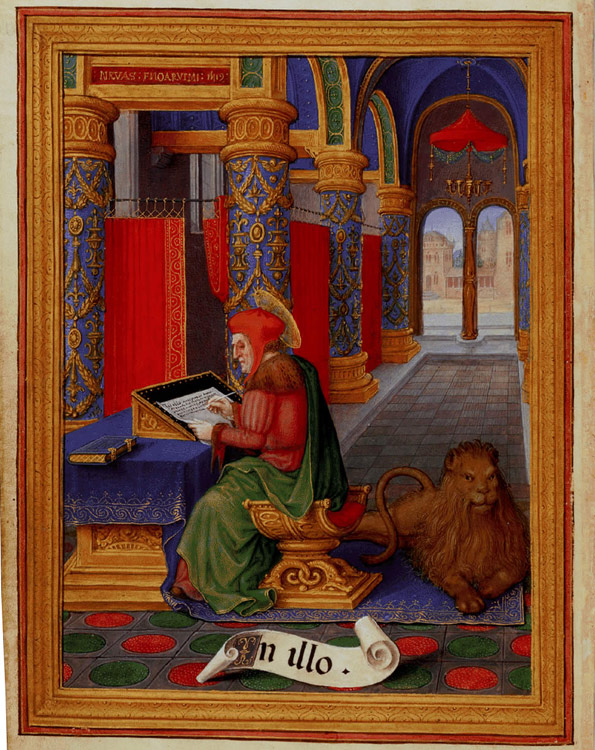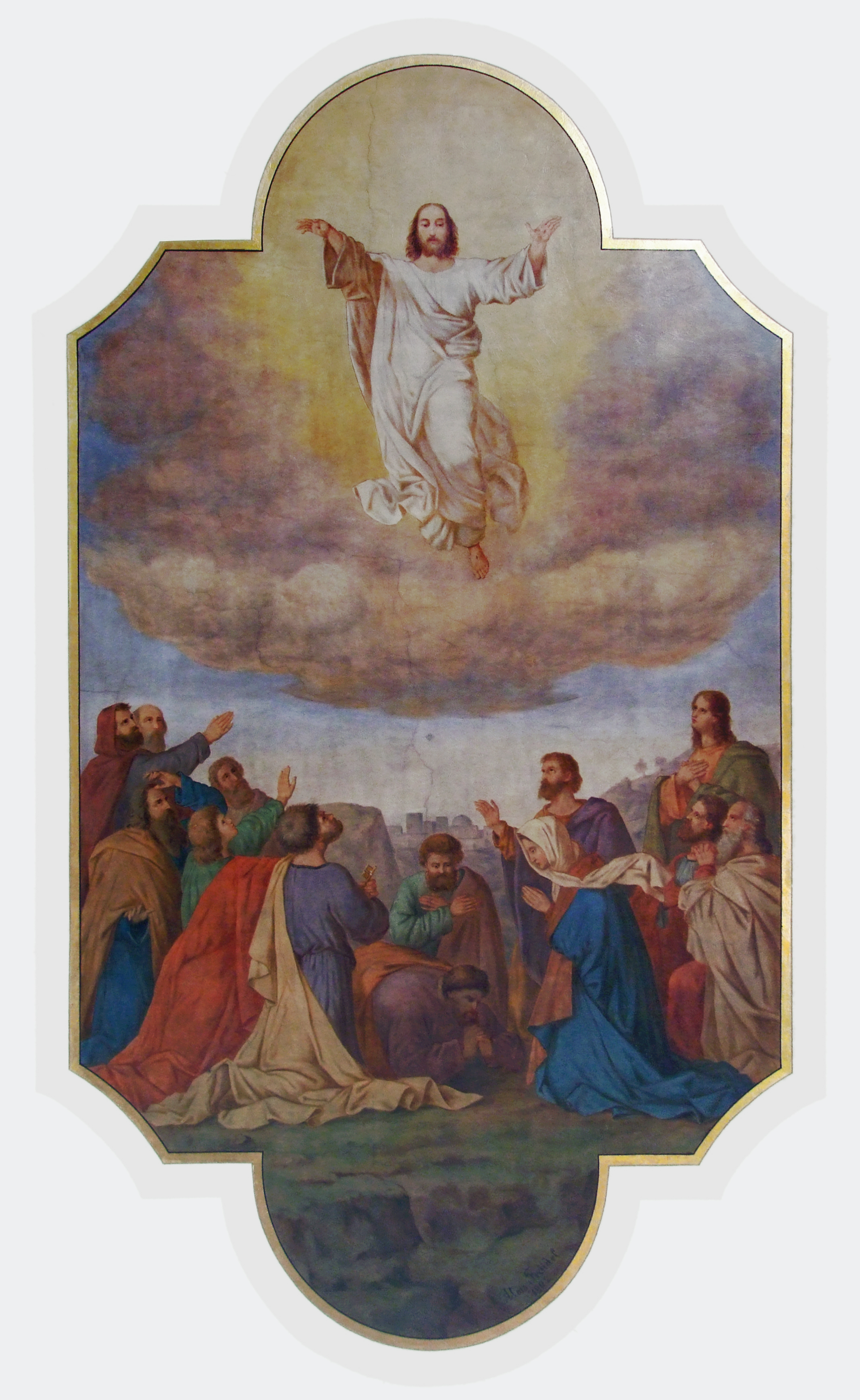I grew up in a variety of Protestant faith traditions, but during my early adolescence my family attended a church that is part of the Christian and Missionary Alliance, which builds much of its mission on the doctrine, "go ye into all the world and preach the gospel." We worked to support missionaries abroad and I can remember the excitement when missionaries would come to our church to share their personal stories and raise money to support their work. They were bringing people to Christ and improving the lives of people all over the world.
Another central tenet of the CMA, like most evangelical Protestant churches, is about the "end times," which they believe is foretold in the Bible through many signs. These end times will be heralded by political turmoil and natural disasters before the faithful are caught up in the "rapture" followed by the "Tribulation" during which time the world will be led by an evil Antichrist. These teachings were always strongly disturbing to me. Although I had been "born again" and baptized by full immersion according to the traditions of the CMA, I was terrified of the rapture. We were shown films that only reinforced my terror. Since then, there has been a tremendously popular series of "Left Behind" books and movies (starring Kirk Cameron) built around these ideas.
One of my most vivid childhood memories was a Saturday afternoon when, as usual, I was dawdling about getting ready to go somewhere with my family. Tired of waiting on me to paint my nails, my family went outside, saying, "we'll be in the car." Several minutes later, I finally felt presentable and dashed out the door to join them. But they were gone. The car was there, but my family was nowhere. In fact, I could not see anyone anywhere. I did not even hear any car in the neighborhood. I was CERTAIN that I had been left behind. I repented and cried, panicked and called out for my mother and for God. I don't know how much time elapsed. An eternity, at least. Then, I heard my parents laughing--at the neighbor's house!
The trauma of that moment has always troubled me.
I imagine that I behaved very well and prayed more than usual for a long time after that, but eventually these ideas about the rapture and tribulation began to to make less sense to me. Over the years, I heard many preachers and others confidently predict the end of the world, and yet it never ended.
When I began to explore Catholicism, I realized that not all Christians have the same beliefs about the end of the world. I had always wondered how anyone could believe the the Book of Revelation was a literal outline of things to come. Rather, the Catholic Church believe that it is apocalyptic literature. Likewise, I had been puzzled by the idea that every word of the Bible is literally true, when parts of the Bible contradict other parts of it. How could we say that we must literally follow the Ten Commandments but not the Mosaic dietary restrictions of Leviticus?
Once I understood that the Catholic Church does not interpret the Bible literally, it all made more sense and my faith was no longer troubled by such inconsistencies.
So, what does the Catholic Church believe about the "end times." First, the Church teaches that no one knows or can predict when the actual end of the world will come. Jesus says this in Matthew 24:36--this is one of those things that literal readers seem to ignore when they are telling us about the signs of the times and setting forth deadlines for Christ's return.
Second, the Catholic Church says that we have been in the end times since Christ's Ascension. Although the Bible refers to a thousand years, Catholics understand that a "millennium" meant a really long time to the Hebrews, not actually and precisely 1,000 revolutions around the sun.
Third, less formally, Catholics are told that the end of THE world should not be more important to us than the end of OUR world. For, our temporal existence will certainly end whether Christ returns during our lifetime or not. We must always be in a state of spiritual readiness, because we cannot know when we will be called from this world.
Finally, like the members of the Christian and Missionary Alliance, we are called to support, promote and participate in evangelization. This has been a particularly strong and recurrent message from the current Pope Francis.
For more about Catholic beliefs regarding the end times:
End Times, Millennium, Rapture on EWTN.com
End Times will bring greater persecution to Christians, says Pope on CatholicNewsAgency.com
What Do Catholics Believe about End Times? on ForYourMarriage.org
May my exploration of faith be a blessing to others.
Sunday, November 22, 2015
Thursday, November 12, 2015
Exploring Catholicism via the Catechism
 |
| Here I am with my lion writing this blog! |
I'm using 2nd Edition -- revised in accordance with the official Latin text promulgated by Pope John Paul II. I did learn to read middle English when studying the Canterbury Tales, I have decided to forego Latin lessons and just be content with this English translation. You can find free copies of the Catechism online and in e-book formats.
I also discovered a television series on our local Catholic channel that is studying the Catechism. It is now scheduled on my DVR. This should also help provide some insights.
I/we shall go through this in small chunks. After all, there are 2,856 statements, sections, paragraphs? I guess I will need to know what the subsections of the articles are called!
As the song says, let's start at the very beginning...
In his Apostolic Letter in the front of the book Pope (now Saint) John Paul II wrote: "...the extraordinary interest that the Catechism has raised throughout the world, even among non–Christians, and confirms its purpose of being presented as a full, complete exposition of Catholic doctrine, enabling everyone to know what the Church professes, celebrates, lives, and prays in her daily life. At the same time it draws attention to the eager desire of all to make their contribution so that the Christian faith, whose essential and necessary elements are summarized in the Catechism, can be presented to the people of our day in the most suitable way possible."
I certainly would like to know what the Church "professes, celebrates, lives, and prays." The Pope's letter goes on to reiterate and confirm the importance of making these doctrines of faith clear for the people of today. He says this text will provide us with help to communicate (via the Holy Spirit) to be able "to link the wondrous unity of the Christian mystery with the varied needs and conditions of those to whom this message is addressed--which is really everyone; he addresses the letter to the "People of God."
Just as today's Pope Francis emphasizes the need for evangelization, John Paul also wrote that an "extraordinary commitment to evangelization is urgently needed so that everyone can know and receive the Gospel message." He goes further to expound that this is an "outstanding gift" through which we are able to "rediscover the inexhaustible riches of the faith." In his first post-conclave publication, Pope Francis calls it the "joy of the gospel." That is how I like to understand my faith; at the root of it is joy and peace. But not joy in the strictest definition as state of extreme pleasure, delight or elation. For me, a closer relationship with God transcends even this. Throughout history, people of faith have found such joy even in the midst of great misery, pain, tribulation, violence. This kind of joy, for me, is summed up by the lyrics of that great hymn:
When peace like a river, attendeth my way,When sorrows like sea billows roll;Whatever my lot, Thou hast taught me to know,It is well, it is well, with my soul.Through this study, I pray that I can develop that level of faith, which is joy, which is love, which is peace.
Subscribe to:
Posts (Atom)
